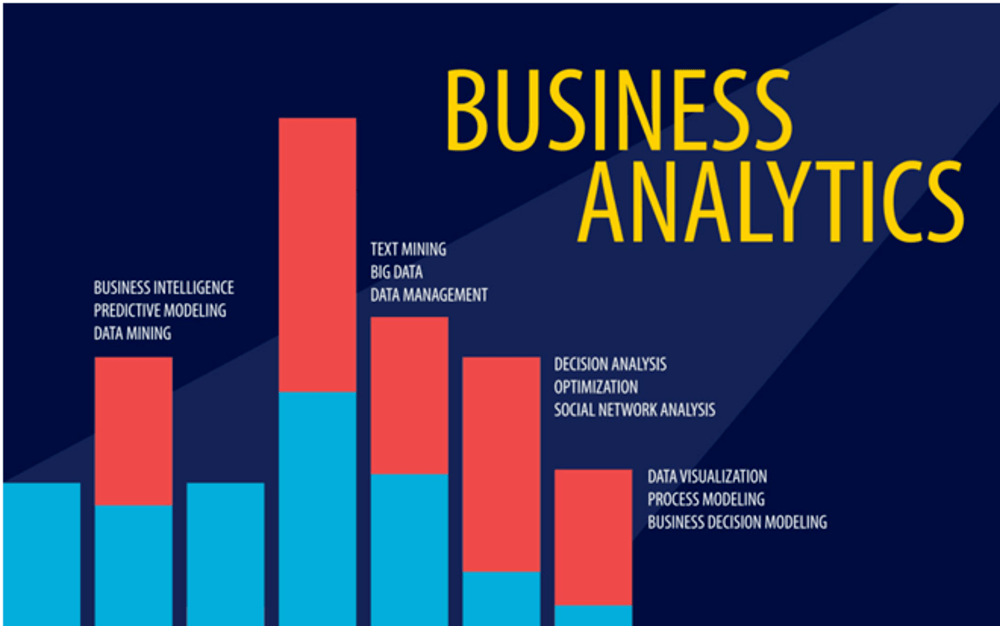
Data analytics and business intelligence have become critical components in today’s data-driven business landscape. With the vast amount of data generated every day, organizations need effective tools and strategies to extract valuable insights that can drive informed decision-making, optimize operations, and gain a competitive edge.
What is Data Analytics?
Data analytics is the process of examining raw data to discover patterns, draw conclusions, and make predictions. It involves the use of various techniques, tools, and algorithms to analyze structured or unstructured data sets and uncover meaningful insights. Data analytics can be divided into descriptive analytics, diagnostic analytics, predictive analytics, and prescriptive analytics.
Why is Data Analytics Important for Businesses?
Data analytics plays a crucial role in helping businesses make data-driven decisions. By analyzing historical and real-time data, organizations can gain actionable insights into customer behavior, market trends, operational efficiency, and financial performance. These insights can lead to improved decision-making, cost reduction, efficiency gains, and identification of new business opportunities.
Business Intelligence: Overview
Business intelligence (BI) is the process of collecting, analyzing, and presenting data in a visual and easily digestible format to support decision-making. It encompasses technologies, applications, and practices that enable organizations to transform raw data into meaningful information for strategic purposes. BI tools provide interactive dashboards, reports, and data visualizations to help users understand and interpret data effectively.
The Intersection of Data Analytics and Business Intelligence
Data analytics and business intelligence are closely interconnected and complement each other. Data analytics provides the foundation for BI by analyzing data and extracting insights, while BI tools facilitate the visualization and communication of those insights. Together, they enable organizations to make data-driven decisions in a timely manner.
Benefits of Data Analytics and Business Intelligence
1. Improved Decision-Making: Data analytics and BI empower businesses to make informed decisions based on accurate insights, reducing the reliance on intuition and gut feelings.
2. Enhanced Operational Efficiency: By analyzing operational data, organizations can identify inefficiencies, bottlenecks, and areas for improvement, leading to optimized processes and resource allocation.
3. Competitive Advantage: Data analytics and BI help businesses gain a competitive edge by uncovering trends, patterns, and market insights that can drive innovation, target new customer segments, and improve products and services.
4. Cost Reduction: By identifying areas of wastage, inefficiencies, and cost drivers, organizations can make data-driven decisions to reduce costs, improve profitability, and drive operational excellence.
Challenges in Implementing Data Analytics and Business Intelligence
While data analytics and business intelligence offer significant benefits, organizations may face certain challenges during implementation:
1. Data Quality and Integration:
The quality and reliability of data can impact the accuracy and validity of analytics results. Data integration from various sources and systems can also be complex, requiring careful planning and data governance.
2. Skills and Expertise:
Effective data analytics and BI implementation require a skilled workforce with expertise in data management, statistical analysis, data visualization, and business domain knowledge.
3. Infrastructure and Technology:
Organizations need to invest in robust infrastructure, including hardware, software, and analytics tools, to handle large volumes of data and ensure efficient data processing and analysis.
The Future of Data Analytics and Business Intelligence
The future of data analytics and business intelligence looks promising. Rapid advancements in technology, such as artificial intelligence (AI) and machine learning (ML), will further enhance the capabilities of these fields. AI and ML algorithms can automate data analysis, identify patterns, and generate predictive models, enabling faster and more accurate decision-making.
Moreover, the increasing adoption of cloud computing and big data technologies will provide organizations with scalable and cost-effective solutions for storing, processing, and analyzing vast amounts of data. Real-time analytics and interactive dashboards will become more prevalent, allowing users to monitor key metrics and make informed decisions on the go.
In Conclusion
Data analytics and business intelligence are indispensable tools for organizations seeking to gain a competitive edge in today’s data-driven world. With effective implementation, these disciplines enable businesses to extract valuable insights, make informed decisions, improve operational efficiency, and foster innovation. By leveraging data analytics and BI, organizations can navigate the complexities of the modern business landscape and stay ahead of the curve.

